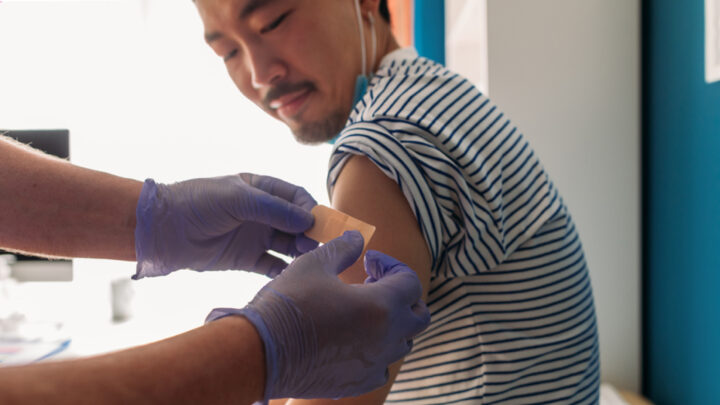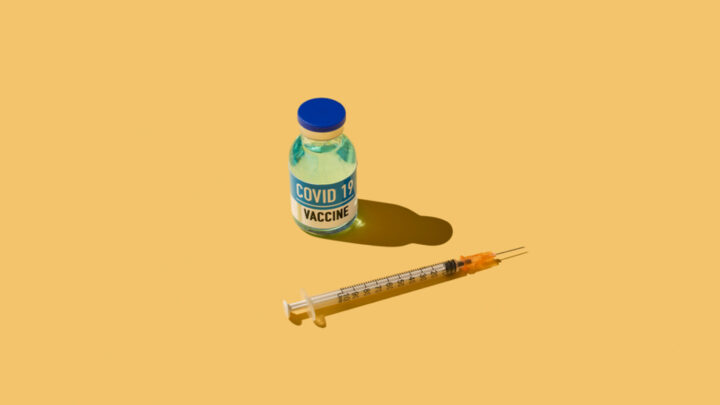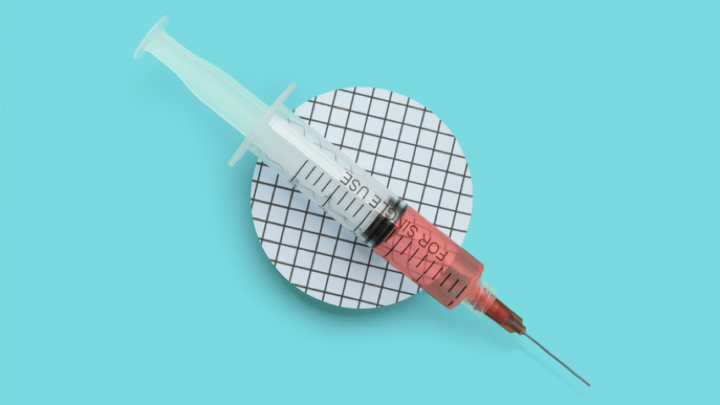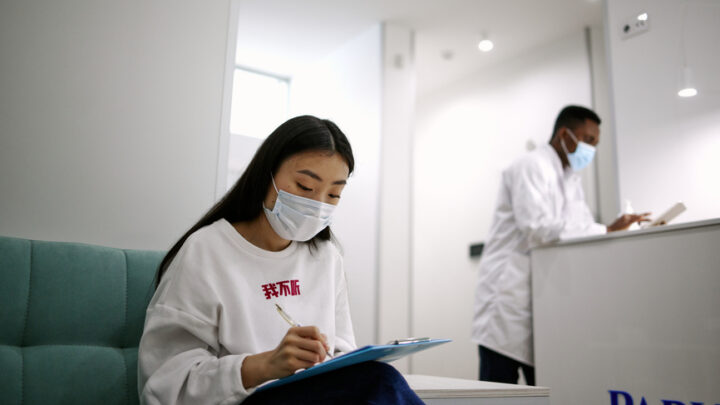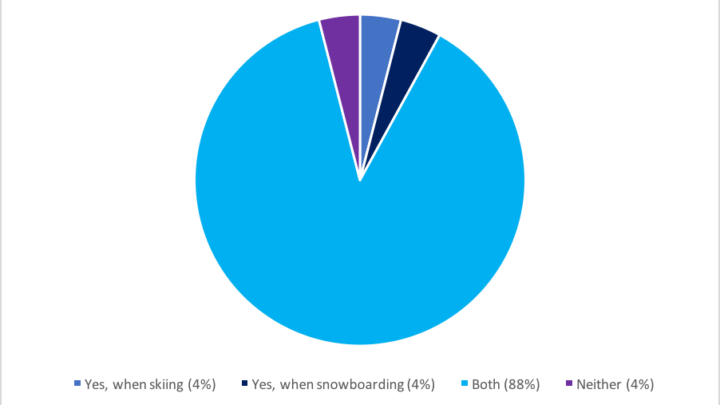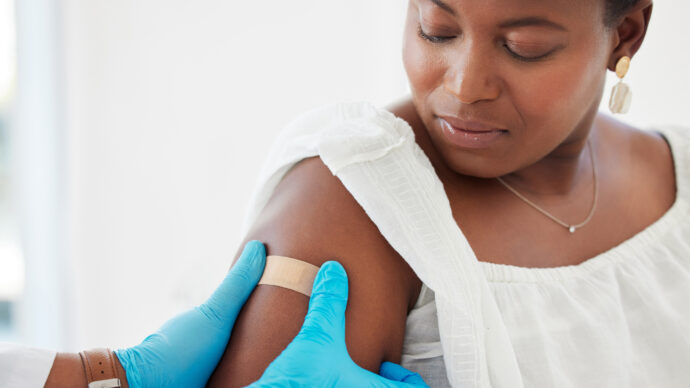
By The Centers for Disease Control and Prevention (CDC)
Authors: Kathleen Dooling, MD and Tara Anderson, DVM, PhD
1. The risk of developing shingles increases with age.
Herpes zoster, also known as shingles, is caused by the reactivation of the varicella-zoster virus (VZV), the same virus that causes varicella (chickenpox). Primary infection with VZV causes varicella. Once the varicella illness resolves, the virus remains latent in the dorsal root ganglia. VZV can reactivate later in a person’s life and cause a painful, maculopapular rash (shingles).
Because our immune system naturally weakens as we age, the risk of shingles increases with age. If your patient has ever had chickenpox, they are at risk for shingles. More than 99% of Americans born on or before 1980 have had chickenpox, even if they don’t remember having the disease. As a result, almost all older adults in the United States are at risk for shingles.
Currently, about a third of Americans will develop shingles at some point in their lifetime.An estimated 1 million people get shingles each year in this country. While a recurrent episode of shingles is not common, multiple episodes are possible.
2. Early treatment is important: three antiviral drugs are available to treat shingles.
Acyclovir, valacyclovir, and famciclovir are available for the initial treatment of shingles and are the preferred antivirals for shingles infection. Treatment is most effective within 72 hours of symptom onset.
These antivirals accelerate the resolution of lesions, reduce the development of new lesions and viral shedding, and decrease the severity of acute pain. Talk with your patient to provide a specific treatment plan based on their condition.
Early diagnosis and treatment are critical to prevent progressive corneal involvement and potential loss of vision.
3. Risk of postherpetic neuralgia (PHN) also increases with age
The older your patients are when they have shingles, the greater their chances of developing the most common complication of herpes zoster— postherpetic neuralgia, or PHN. PHN is pain that persists in the area where the rash once was for more than 90 days after rash onset. PHN can last for months and occasionally, for years. About 10% to 18% of people who get shingles will experience PHN. PHN is rare in people younger than 40 years old.
Other complications of shingles can include:
- Hearing or vision loss (if eye or ear dermatomes involved in rash)
- Encephalitis
- Pneumonia
4. As a healthcare provider, your strong recommendation for shingles vaccination makes your patients more likely to get vaccinated.
Two doses of Shingrix vaccine provide strong protection against shingles and postherpetic neuralgia (PHN). Recommend that your patients 50 years and older get two doses of Shingrix, separated by 2 to 6 months. Adults 19 years and older who have weakened immune systems because of disease or therapy should also get two doses of Shingrix, as they have a higher risk of getting shingles and related complications. Encourage patients to complete the two-dose series for full protection.
Even if you do not stock the vaccine in your office, emphasize to your patients that nearly all pharmacies will administer Shingrix. It is covered by most health insurance plans, and if your patient has Medicare Part D coverage, Shingrix vaccination is now free.
A previously approved shingles vaccine called zoster vaccine live (Zostavax) is no longer available for use in the United States; Zostavax was discontinued in the U.S. as of November 18, 2020. If your patient had Zostavax in the past or previously had shingles, they are still recommended to get two doses of Shingrix.
When discussing with patients, it’s helpful to remind them that 2 doses provide strong protection against shingles and long-term pain and other complications from the disease. In addition, remind your patients that side effects from Shingles are normal and symptoms usually go away on within in 2 to 3 days. Make a strong vaccination recommendation and protect your patients from shingles.
5. Immunocompromised patients are at high risk for shingles; immunocompromised adults 19 years and older are now eligible for Shingrix.
Immunocompromised persons experience a higher incidence of herpes zoster and related complications. About 30% of people hospitalized for shingles have a weakened or suppressed immune system. People with the following conditions that compromise or suppress their immune system have an increased risk for herpes zoster:
- cancer, especially leukemia and lymphoma,
- human immunodeficiency virus (HIV),
- bone marrow or solid organ (renal, cardiac, liver, and lung) transplant recipients, or
- taking immunosuppressive medications, such as steroids, chemotherapy, or transplant-related immunosuppressive medications.
With moderate to high vaccine efficacy among immunocompromised groups and an acceptable safety profile, Shingrix can prevent considerable herpes zoster incidence and related complications. When possible, patients should be vaccinated before becoming immunosuppressed, such as before transplant or before starting immunosuppressive therapy. However, if vaccination before immunosuppression is not possible, you should consider timing your patient’s vaccination when their immune response is likely to be most robust. Additional guidance is available on the CDC website: Use of Recombinant Zoster Vaccine in Immunocompromised Adults Aged ≥19 Years: Recommendations of the Advisory Committee on Immunization Practices — United States, 2022 | MMWR (cdc.gov)
About Sermo
Sermo is the original medical social network that empowers today’s physicians. Everyday thousands of fully verified physicians across more than 150 countries come to our platform to talk with peers, exchange medical knowledge, participate in paid medical studies, solve challenging patient cases, contribute to the world’s largest database of drug ratings – and enjoy a few laughs along the way.
Are you a physician or healthcare practitioner?
Explore the many benefits of Sermo’s medical community and join in on all the exciting conversations when you sign up for free today.
